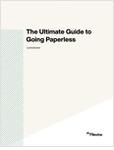Winners can finally be named in the race among U.S. and U.K.based law firms to be the first to open an office in South Korea.
Sheppard Mullin Richter & Hampton announced late Wednesday that it has opened an outpost in Seoul, its 16th location worldwide, with partner Byoung Soo “Seth” Kim at the helm in brand-new office space. Sheppard Mullin’s announcement comes about a month after Ropes & Gray announced its own on-the-ground opening with operations led by William Yongkyun Kim.
At least 14 other firmsa dozen of them large international shopshave also applied to establish operations in Korea, though they are still awaiting the required approvals. For an international firm, the steps toward opening an office in the country include securing the blessings of both the South Korean Ministry of Justice and the Korean Bar Association for an individual lawyer to act as a foreign legal consultant. With that approval in hand, the lawyer then sponsors his or her firm before the same two agencies.
The at-times breathless competition to be first into South Koreawhich has seen competing firms issuing press releases announcing their every move, however minor, on the way to launching a new officebegan earlier this year following the passage of a free trade agreement loosening restrictions on outsiders doing business in South Korea.
Under that agreement, U.S. and U.K. firms can still only practice the law of their home countries, as well as international trade law, for the next several years. Beginning in 2017, foreign firms will be allowed to merge with South Korean firms and hire local lawyers.
Sheppard Mullin chairman Guy Halgren says he feels a combination of “exhilaration and relief” now that the Seoul office is finally open following a years-long wait for the trade agreement to be ratified and then the relatively smooth approval process overseen by the Korean government. While the firm’s new office will initially have three lawyers and one staff member, Halgren says there are plans to expand the operation to include between 10 and 15 people within a year or two.
U.K.based Clifford Chance appears to be the next firm poised to open a Seoul office. The Magic Circle shop has received all of the necessary approvals and identified the space it plans to occupy, according to a spokesman for the firm, who added that the firm would open “as soon as the administrative process allows.”
Other firms still making their way through the approval process include: Covington & Burling; Cleary Gottlieb Steen & Hamilton; DLA Piper; Herbert Smith; K&L Gates; McDermott Will & Emery; McKenna Long & Aldridge; O’Melveny & Myers; Simpson Thacher & Bartlett; and Squire Sanders.
A Covington spokeswoman says the firm is currently building out office space and expects to be up and running by mid-September. Herbert Smith, one of the later entrants to the fray, hopes to open by early next year, according to a firm spokesman.
The competition to be first to open in a specific country is a relative rarity, which Halgren attributes to South Korea being the first nation with a “vibrant economy” to open its doors to foreign firms in recent years. He suspects firms would be similarly excited if India ever opens up to foreign lawyers.
Ropes & Gray’s Kim told The Am Law Daily earlier this year that while he recognizes being the first to open in South Korea doesn’t qualify a firm as being the best at providing legal services, he still felt it was important to try to win the race. “We want to show Korean clients, the government, and everybody in Korea our commitment and dedication,” he said in a June interview.
Last month, sibling publication The Asian Lawyer explored what’s shaping up to be a crowded Korean legal market and questioned whether the amount of work available in the countryheavily dependent on less than two dozen major Korean companiesjustifies the increased competition.
The Korean market is definitely not as big as Hong Kong or Japan, Jong Han Kim, the Hong Kongbased head of Paul Hastings’s Korea practice, told Asian Lawyer. If people are coming in and hoping for dramatic breakthroughs, it might be challenging.
Halgren says he doesn’t think oversaturation will be a problem, given that the firms entering the market already have Korean practices based in their home countries. That is certainly true for Sheppard Mullin, which expects to continue practicing in the areas of finance, corporate, antitrust, intellectual property, entertainment, and disputes work from the new Korea office, with transactional matters outweighing litigation. The firm’s Korea-based clients include Hyundai Motor, Kookmin Bank, Samsung, and Shinhan Bank. (The firm’s office head, Seth Kim, also tells the Korea Times that he plans to help bring awareness of Korean popular culture abroad.)
Ropes, meanwhile, plans to focus its initial efforts on intellectual property litigation as well as antitrust, life sciences, government enforcement, corporate transactions, and other business litigation.
“I don’t know that the market needs to increase for us to be very successful,” Halgren says, noting that just being in close proximity to clients the firm already has relationships with will help Sheppard Mullin lawyers do existing work better. “We just want to take a bigger share of the market right now that is being performed by other U.S. firms.”





